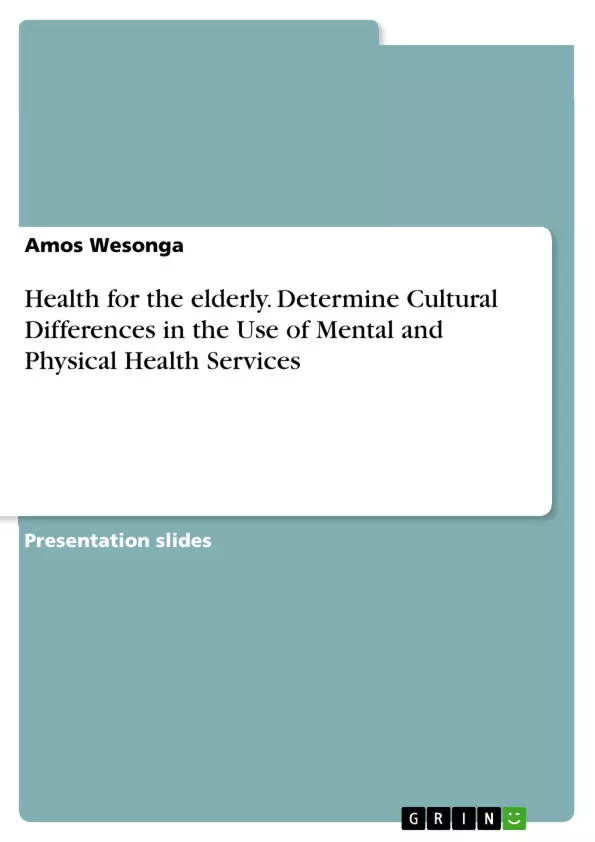Health practitioners should have an understanding of the cultural practices of different groups of people. We learn about the important cultural factors that affects effective delivery of healthcare services
Inhaltsverzeichnis (Table of Contents)
- Introduction
- Muslim
- Koreans
- Assessment Tools
- Cultural Assessment Tools
- Cultural Assessment Cont.
- Spiritual Assessment
- Tips for Nurses (Muslim)
- Tips for Nurses (Muslim)
Zielsetzung und Themenschwerpunkte (Objectives and Key Themes)
This text aims to educate healthcare practitioners about the cultural practices of Muslim and Korean populations, emphasizing the importance of understanding these practices for effective healthcare delivery.
- Cultural sensitivity in healthcare
- Impact of cultural values on patient care
- Spiritual needs and practices in healthcare
- Dietary considerations in healthcare
- Importance of respectful communication and patient autonomy
Zusammenfassung der Kapitel (Chapter Summaries)
- Introduction: The text highlights the need for healthcare practitioners to understand the cultural practices of diverse patient populations. It emphasizes the importance of cultural competency in delivering effective care.
- Muslim: This section discusses the importance of cultural sensitivity when caring for Muslim patients. It emphasizes respecting spiritual needs, privacy, modesty, and dietary requirements.
- Koreans: This section focuses on the cultural norms and values of Korean patients. It highlights their respect for elders, preference for Asian medicine, and strong religious affiliation.
- Assessment Tools: This section emphasizes the need to use cultural and spiritual assessment tools to understand patients' beliefs and values. It stresses the importance of being aware of one's own cultural biases and values.
- Cultural Assessment Tools: This section discusses the benefits of using cultural assessment tools, highlighting the importance of recognizing how cultural values influence patient attitudes and behaviors.
- Cultural Assessment Cont.: This section continues the discussion of cultural assessment, focusing on understanding the cultural beliefs and values of patients and their impact on healthcare encounters.
- Spiritual Assessment: This section emphasizes the importance of addressing the spiritual needs of patients, highlighting the impact of spirituality on healthcare encounters.
- Tips for Nurses (Muslim): This section provides practical tips for nurses caring for Muslim patients. It includes considerations for dietary issues, cultural sensitivities, negotiation, and patient autonomy.
Schlüsselwörter (Keywords)
The main keywords of this text include cultural sensitivity, cultural competency, spiritual needs, cultural assessment, spiritual assessment, dietary considerations, patient autonomy, Muslim, Korean, healthcare, and diversity.
- Quote paper
- Amos Wesonga (Author), 2015, Health for the elderly. Determine Cultural Differences in the Use of Mental and Physical Health Services, Munich, GRIN Verlag, https://www.hausarbeiten.de/document/429301


